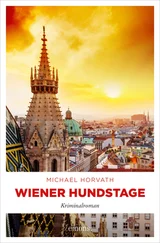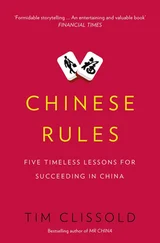Were we fat? We were by no means a lean people. Yet I’d wager we were in no worse shape than many others who ate with far less frequency. What we consumed was fresh, chewed with vigor and aplomb, every bite maximized. To this day, I can’t eat rapidly without the chastising voices of an older generation—“Slowly, slowly”—echoing in my ears, as if presaging a day when food would become so scarce that it would become necessary to eat at escargotian paces.
When I first heard the term foodie , I laughed. Were we not all “foodies”? Equally amusing is the nation that chooses the “melting pot” as a metaphor; over the ensuing decades, Vassilonia leveled all of its nondescript office buildings and replaced them with giant replicas of pots and pans, bringing forth a magnificent skyline, with its crown jewels, the Collander Building and, of course, the Pepper Mill, whose luminous glow at sunset I won’t deign to describe. Of course, all are gone now, scrapped for weaponry or, more recently, rusted over and mottled with verdigris, dark domes where scrawny dogs take refuge.
Where, you ask, did we get all of our ingredients to make such copious servings? From near and far away; nothing was actually grown in Vassilonia, and for this oversight no one can take responsibility but ourselves. You have to understand that our tourist trade was off the charts — even lodgings, aside from the homes of residents, fell outside city limits, there being so little room to spare. Yes, there were businesses that weren’t restaurants, but all converged in one way or another around food. Clothing boutiques were geared around dressing for a particular cuisine — you could don authentic garb from any culture, or pair an outfit with your food (a delightful striped marzipan dress), or simply “dress for a mess,” as we put it. And I must say our red-light district was far more risqué than anything you have elsewhere, whipped cream and chocolate fudge being fine but rather blah when you can find yourself glazed in amandine, or sprinkled with lemon-infused coconut shavings, pepper-cantaloupe chutney, and beyond.
A bit of a caste system, it must be admitted, began to emerge, with internationally trained chefs at the top of the hierarchy, followed by sous-chefs, followed by shopkeepers of all sorts, who were roughly on par with waiters, and below that dishwashers, necessary but never given the respect they deserved. Our mayoral elections consisted of great cook-offs, open to the public and swelling with waves of raucous cheering, which typically swept one candidate to a clear victory, though once or twice we needed to resort to ballots. And, of course, there were the critics, a rising class of academics who, it must be said, never learned to cook themselves, only to depict and analyze the dishes of others. The emergence of this intellectual class stirred a certain amount of resentment among Vassilonians, who nevertheless took great pleasure in reading aloud the most eminently quotable ones, and considered their writings to be a worthy contribution to world literature.
Among them was the legendary “Maz”—no one knew his true identity, as much as people tried to figure it out — were these his initials, or a shortened version of his name, some code, a tag à la a graffiti artist? Many of the critics were known by their faces and recognized, but Maz eluded any certainty about his identity. He’d write about meals he’d had months before, which was still practical because at that time restaurants simply didn’t go out of business, and he’d make the writing so vivid it was as though he was still digesting. So he was impossible to trace. Legend had it that he was a shape-shifter, too, that one day he’d come in as a cowboy trucker, hunched over in stiff dungarees and heavy shades, and the next as an elderly woman with varicose veins dripping down her legs.

The collapse was, looking back, as inevitable as it was sudden. It started with a wave of food poisonings — terrorists, cost cutting in the refrigeration industry to save a few bucks, a mass hallucination, no one knows. What does it matter? The bubble had burst. People stopped going to certain establishments. No one died, but toilets could be heard flushing throughout the city all night long for days, alternating with ghastly retching sounds that ranged from alto to bass. It was a horrific week and it passed. Yet, for the first time since the Fearless Nine had forged their pact, a general wariness seeped into everyday life. I remember it well — people stopped meeting one another’s gazes. Exchanges of belching began to be frowned upon. Certain venues were avoided, spoken of in hushed tones. Tables sat empty. The critics, in turn, lashed out, as though they’d been holding back a grudge for years. Better scrutiny of food sources was needed — did anyone have any clue where these things were grown and by what sort of people? Were they out to get us? The critics’ pens didn’t leave Vassilonia unscathed, either, as they accused their own of rampant nepotism and double-dealing, targeting refrigeration moguls and oils barons. Some asserted that this newly exposed vulnerability meant the city was doomed. This incident had only made people sick, but when would the next one be, the one that would wipe them out, leaving them in the grotesquely preserved poses of Pompeii’s citizens?
Head Chef/Mayor Needlebaum came down hard on the critics, as any political figure left dangling in the wind might. He centralized control, clamped down on the borders. Of course, the tourist industry that they’d always relied on was badly damaged, too. Then the growers struck back. If the first case was a fluke, the second one was frighteningly deliberate, a retaliation against the smear job they felt they’d gotten in Vassilonia’s media and at Needlebaum’s attempts to micromange them afterward. It had been a bad growing season, too, and some say that it all was merely an expression of their rage at forces beyond human control. Either way, it was trouble. The tanks moved in this time, not from Vassilonia. (Tanks? Ha — we had grills on wheels, running on biodiesel.) If Vassilonia couldn’t control its own borders, ensure the safety of its own people, not to mention that of diplomats and expats, then other, more capable nations would.
At first, they attempted to occupy, but this proved impractical. Their soldiers came in with their bland tinned rations, and we fought back the only way we knew how, with spices we’d stockpiled for generations. Hot sauces, so far off the scale of Scoville units that the word atomic wasn’t mere hyperbole, found their way into their meals. Prunes that seemed to explode in the intestinal tract. Glass noodles containing actual bits of glass. We were able to beat them back to the border within a matter of weeks. But knowing that our ultimate sources were outside, they ringed the city and froze any incoming traffic. We exhaled collectively, went back to life as usual, waited. Figured this was merely the first of several retreats.
They never came. Here, then, we remain, almost a decade later, turned inward, having exhausted our once-plentiful reserves. Some of us who know the older epics, who see the murals and remember the tough times from which we sprang, retain a modicum of hope. But there are reasons for despair, too. Already there is rumor of cannibalism in some quarters, though if I know my fellow citizens, it will be unlike any cannibalism ever witnessed: the bodies prepared in fiery sauces that have been hidden away for years, garnished in artichoke hearts marinated in many-pressed oils, sprinkled with tarragon and sage culled from a window box, with side dishes of pâté whose richness reveals decades of fine dining.
Читать дальше













